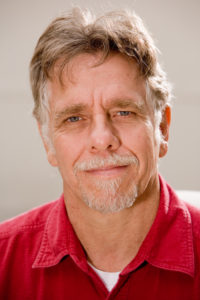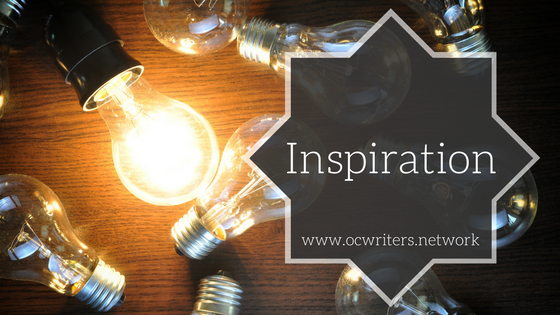by Matthew J. Pallamary
Foreword from the Author
A shaman’s path is one of deep self-examination. For writers, the act of writing is also a process of self-examination. Writers constantly analyze themselves, the behaviors of others, and the world around them in an effort to understand who they are and the nature of the world they inhabit in order to find out what is important to them.
Where do your strongest feelings lie? What sets you off, fires you up, infuriates, intimidates, obsesses, or fascinates you? What do you love or hate with unbridled passion? Something in the newspaper, on the radio, or television get your blood pressure up? What grabbed your attention as a kid? Doctor Dolittle? King Arthur? Curious George? Dracula? Tarzan? Something by Heinlein, Bradbury, or Asimov? The thing that lurked in your closet or under your bed?
There lies the ore to be mined.
Begin by researching what fascinates or affects you deeply, then write about it. It’s all there waiting to be mined from the world around you and within you.
[Note from Megan: The following article is a chapter from Matthew J. Pallamary’s book on writing, Phantastic Fiction: A Shamanic Approach to Story (used with permission from the author). I’ve taken his course of the same name, and it’s well worth your time if you ever attend the Southern California Writers’ Conference or the Santa Barbara Writers’ Conference.]
Training Your Brain — Research
In the same way that a shaman prepares for a visionary, knowledge seeking journey, a writer must make their own plans. Before starting a new screenplay, or the long, grueling commitment of writing a novel, the writer needs sufficient material to sustain them for the duration of their story. The research portion of your project is the act of filling yourself with information in the same way you fill a large vessel.
The filling of your subconscious and the subsequent emptying is intrinsically tied in with the writing process. Once you gain insight into this mysterious event, you will have a better understanding of yourself and you will know and recognize the mental processes, thoughts, and feelings that go along with each stage of the journey.
There is the obvious danger of not doing enough research and there is the danger of getting over involved; one of the tricks the lazy, procrastinating part of your mind will use to keep you from sitting down in the chair and getting the job done. This diversionary tactic falls in the same category as house cleaning, dish washing, computer and video games, television, food, sex, drugs, and rock and roll.
There is a time and place to experience vices and virtues, but when they are used as escapes to keep you from sitting down and doing the work, you have to learn the signs and apply the necessary self-discipline. On the same note, there is also a philosophy of holding off on the fun stuff, using it as rewards and incentives.
When you do research, take in everything possible; film, video, audio, books, music, newspapers, magazines, pictures, lectures, and classes. If you’re in a position to do so, visit the place where you’re setting your tale. Think of it in terms of filling yourself. You have to feed your mind with all the ingredients you can until it’s bursting at the seams, then you want to hold off as long as possible to let the stew simmer. This part of the process is analogous to foreplay and lovemaking where each partner shows restraint, withholding the moment of fulfillment and letting the tension build for greater satisfaction.
The resulting “explosion” will propel your narrative forward with a strong enough push to carry it through the mid-book doldrums.
The key to this is learning to trust your subconscious by understanding how to train and feed it, trusting in the fact that it will deliver — and it will deliver. When you learn what a mysterious ally your subconscious is, it will amaze you with what it brings to the party. You may find yourself in the middle of a scene, your logical mind feeling lost, when a line of thought, narrative, description, or dialogue will spring forth, sometimes faster than you can get it down. At these times, to hell with grammar, sentence structure, and everything else you’ve ever learned. Go with the flow and get it down. Making it perfect is what rewriting is all about.
There is a “no man’s land” that lies between your opening lines and the end of your book, paragraph, sentence, or chapter, the place that Stephen King refers to as “falling into the page”. You know where you want to go, but you have no idea how to get there. This is the point where your ally brings his powers to the endeavor. This is where the shaman takes flight.
It is also part of the process of “emptying out”. Your subconscious will bring the right things at the right places at the right times. All you have to do is learn how to train it and trust it. The next thing you know, you have a page, a chapter, then a book. Though you did not consciously attempt every detail of it, you’ll have the pleasant experience of discovering an underlying coherence in all you do. Ask any professional fiction writer how many times someone has come up to them and said: “I love the way you tied those pieces together and connected this to that. It was brilliant!” The writer will smile and nod, knowing full well they have no clue as to how he or she accomplished the lauded feat.
***

Matthew J. Pallamary, Author
Matthew J. Pallamary’s historical novel of first contact between shamans and Jesuits in 18th century South America, titled, Land Without Evil, received rave reviews along with a San Diego Book Award and was adapted into a full-length stage and sky show performed by an Austin Texas aerial group. The making of the show was the subject of a PBS series, Arts in Context episode, which garnered an EMMY nomination. His memoir Spirit Matters detailing his journeys to Peru, working with shamanic plant medicines took 1st place in the San Diego Book Awards Spiritual Book Category, and was an Award-Winning Finalist in the National Best Book Awards. Matt has a dozen books in print and has been teaching at the Santa Barbara Writers Conference, the Southern California Writers Conference, and many other venues for the past twenty five years. He frequently visits the mountains, deserts, and jungles of North, Central, and South America pursuing his studies of shamanism.
*O.C. Writers is a participant in the Amazon Services LLC Associates Program, an affiliate advertising program designed to provide a means for us to earn fees by linking to Amazon.com and affiliated sites. By clicking on the book links anywhere on this site, we earn a small commission from your purchase.




